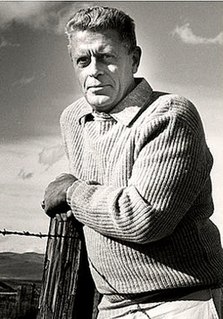A Quote by Peter Morgan
You're either a person with a conscience, or you're not. I think I've got quite a fine conscience.
Related Quotes
Isana laughed. "And you, lady? Are you a woman of conscience or of ambition?" The lady smiled. "That's a question rarely asked here at court." "And why is that?" "Because a woman of conscience would tell you that she is a person of conscience. A woman of ambition would tell you that she is a person of conscience—only much more convincingly.
But that's always the way; it don't make no difference whether you do right or wrong, a person's conscience ain't got no sense, and just goes for him anyway. If I had a yaller dog that didn't know no more than a person's conscience does I would pison him. It takes up more room than all the rest of a person's insides, and yet ain't no good, nohow.
But what of the voice and judgment of conscience? The difficulty is that we have a conscience behind our conscience, an intellectual one behind the moral. ... We can see quite well that our opinions of what is noble and good, our moral valuations, are powerful levers where action is concerned; but we must begin by refining these opinions and independently creating for ourselves new tables of values.
True law, the code of justice, the essence of our sensations of right and wrong, is the conscience of society. It has taken thousands of years to develop, and it is the greatest, the most distinguishing quality which has developed with mankind ... If we can touch God at all, where do we touch him save in the conscience? And what is the conscience of any man save his little fragment of the conscience of all men in all time?
Although there is nothing so bad for conscience as trifling, there is nothing so good for conscience as trifles. Its certain discipline and development are related to the smallest things. Conscience, like gravitation, takes hold of atoms. Nothing is morally indifferent. Conscience must reign in manners as well as morals, in amusements as well as work. He only who is "faithful in that which is least" is dependable in all the world.
The central trait of sociopathy is a complete lack of conscience, which is very difficult for most people to get their heads around, because those of us who do have a conscience can't really imagine what it would be like if we didn't. Most people think that deep down everybody has a conscience, and it turns out that's just not true.
The reason I want to explain that you're probably never going to get revenge a sociopath and you're also probably not going to redeem this person, is that it is not a project that will ever succeed. At present, if a person does not have a conscience, we know of no way to instill one - not even a little bit. It's not like something you can take off the shelf and put into somebody's brain. It makes me so sad to hear people say, "I think I can see just a little bit of a conscience."




































